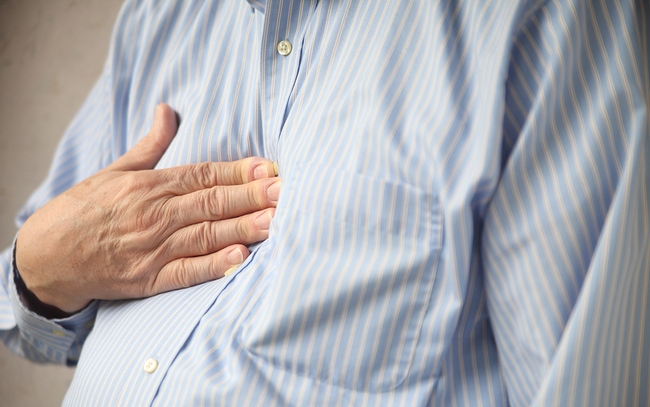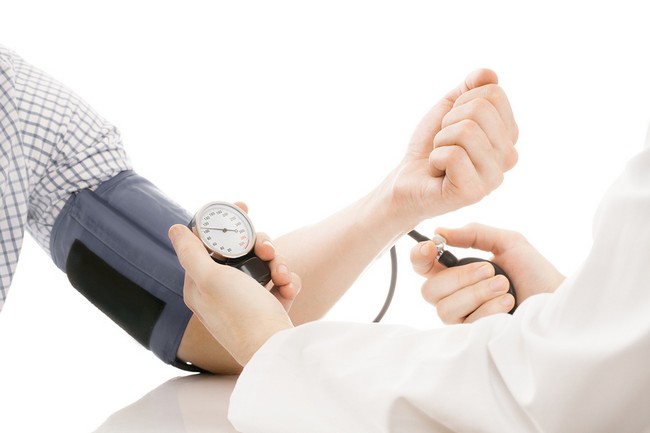- Make It Yourself Lavender Heart-Shaped Bath Bombs!
- 20 Things You Never Knew About “Down There”
- 12 Best Foods For Those Suffering From Arthritis Pain
- 12 Personal Hygiene Mistakes Almost Everyone Makes (Mom Never Told You About #4!)
- 15 Medicinal Plants And Herbs From The Cherokee People
- 12 Mind-Blowing Benefits Of Drinking Coconut Water During Pregnancy
- 12 Outstanding Winter Foods That Won’t Fatten You Up Like A Christmas Turkey
10 Signs You Have A Potassium Deficiency (#5 – Who Knew?)

Photo credit: bigstock.com
Athletes know all too well about the importance of electrolytes for giving them optimal performance, but most of us who are not professional athletes don’t know just how important it is that our bodies have a consistent balance of electrolytes, including potassium, for our overall health and well-being.
Most of the potassium in our bodies resides in our cells. There is actually very little in the blood. However, even small fluctuations in our potassium levels can have severe consequences — more than most people ever imagine.
You probably know that your body relies on electricity to function. Potassium supports proper electrical function and the transmission of signals. Without sufficient levels of potassium, our muscles either do not receive signals or the signals are slow in coming. When you consider the fact that your heart is also a muscle, the importance of potassium becomes clear.
Those who eat a healthy, balanced diet should have no problem consuming sufficient amounts of potassium; however, the truth is that most Americans don’t eat a healthy diet. This makes it quite easy to become low on this important mineral.
In addition to diet, there are other factors leading to low levels of potassium. Diuretics are used to remove excess fluids from the body, but excessive urination can lead to an electrolyte imbalance. The kidneys also play an important part when it comes to regulating electrolytes in the body. Kidney problems and weak kidney function can also lead to low potassium levels.
Excessive sweating or regular use of laxatives can affect our electrolyte levels and cause a potassium deficiency. And, as any mother knows, vomiting and diarrhea can also affect the levels of potassium in the body. Although this is generally short-lived as potassium levels return to normal once the person starts eating and drinking again, for those with prolonged illnesses, ensuring that they get sufficient levels of potassium is very important.
While we are taking about potassium, we need to put in a few words about magnesium. Some experts have estimated that between 68 to 80 percent of Americans do not get sufficient amounts of magnesium. When we are low on magnesium, the pumps that concentrate potassium inside our cells don’t work. This means that even if we take several potassium supplements, they will not reach our cells. This is why a good doctor will tell you to take a magnesium supplement if you are low on potassium.
Perhaps one of the biggest problems with a potassium deficiency is that the symptoms are mild, vague, and mimic other illnesses, so they are often overlooked or are misdiagnosed until the deficiency becomes severe.
Low levels of potassium are nothing to fool around with, and they can have life-threating consequences.
Become familiar with the top 10 signs of potassium deficiency.
Continue to Page 2

Photo credit: bigstock.com
1. Blood Pressure Issues
Since potassium affects our heart muscle, it’s no wonder that a potassium deficiency wreaks havoc on our heart, and therefore, our blood pressure. If you have noticed that your blood pressure is higher than normal, taking more potassium will help lower it. If you are having symptoms of low blood pressure such as dizziness, fainting easily, or constantly cold hands and feet, then adding potassium to your diet can help increase your blood pressure. There are other issues that affect blood pressure, but this is one of the signs of a potassium deficiency.
2. Muscle Cramps
This is the most common sign of a potassium deficiency. When our muscles do not have enough potassium, cramping in the legs, feet, and arms is common. This is because the cells that make our muscles function do not have enough potassium to send or receive the proper electrical signals. These muscle cramps can be anything from simply annoying to absolutely debilitating. Involuntary twitching of the muscles or mini-cramps the toes or on the face that occur on a regular basis can be signs of a potassium deficiency.
3. Mental Or Emotional Issues
An extreme symptom of potassium deficiency is hallucinations. Others have reported confusion, unclear thinking, a complete inability to concentrate, and depression. If you are experiencing any of these symptoms or if someone you love is showing these signs, you should consult a physician immediately. A simple blood test can confirm potassium levels.
Continue to Page 3

Photo credit: bigstock.com
4. Heart Palpitations
Although this can be a sign of a serious heart condition, simply being low on potassium can also cause heart palpitations. Never wait to see if taking potassium supplements improves your condition. You could be on the verge of having a heart attack. If you are experiencing heart palpitations, call 911 or go to an emergency room right away. If it is nothing more than a potassium deficiency, medical experts can correct the problem easily.
5. Fatigue
So many health problems or diseases have this symptom, and most people end up ignoring it, but this is actually one of the more common symptoms of a potassium deficiency. If you are experiencing fatigue that is not caused by overwork or exercise, then you might have a potassium deficiency. Consult your doctor and confirm.
6. Muscle Weakness
One of the best measures of a potassium deficiency is to judge how your muscles work. If you feel an unexplained weakness in your muscles, if you tire easily, or if you seem to tear or strain muscles with little or no effort, then you might be low on potassium. Potassium heals our muscles on a cellular level, and when we do not consume enough, it leaves our muscles feeling weak, tired, and easily damaged.
7. Tingling Or Numbness
Low levels of potassium can lead to numbness or tingling feelings in the arms and/or legs. If you experience these types of feelings, especially in combination with any other symptom on this list, then chances are high that you have a potassium deficiency.
Continue to Page 4

Photo credit: bigstock.com
8. Constipation
This is another sign that is often confused with low fiber consumption. Other digestive problems also cause constipation, which is why you should confirm your thoughts about a possible potassium deficiency with your doctor.
9. Dizziness And/Or Vertigo
This is another common symptom of a potassium deficiency, but this indicates that your potassium levels are dangerously low. You should immediately eat something that is high in potassium, such as an avocado or a banana, and then make an appointment with your doctor.
10. Extreme Thirst and Frequent Urination
In an attempt to get more potassium, your body will give you a sense of thirst and will continue to tell you that it is thirsty to try to get enough potassium. Of course, drinking so much water will lead to frequent urination. These symptoms can also indicate other diseases, such as diabetes, so it is important that you see your doctor if you are experiencing excessive thirst and urination.
SEE ALSO: Top 10 Signs You Have a Serious Deficiency in This One Vitamin
One of the best ways to get your daily levels of potassium is by eating foods that have plenty of potassium each day. Some of the best sources of potassium are:
- Bok choy
- Beets
- Beet greens
- Broccoli
- Brussels sprouts
- Brazil nuts
- Swiss chard
- Potatoes
- Avocados
- Bananas
- Sweet potatoes
- Kidney, lima, and pinto beans
- Lentils
- Papaya
- Almonds
- Squash
Knowing the most common signs of a potassium deficiency is important. If you notice any of these, you can kick up your consumption of potassium-rich foods and get your electrolytes back in good working order with a minimum of discomfort and avoid major complications.
It is much better to get your daily requirements of potassium from natural, whole foods rather than rely on a synthetic supplement.
References:

































